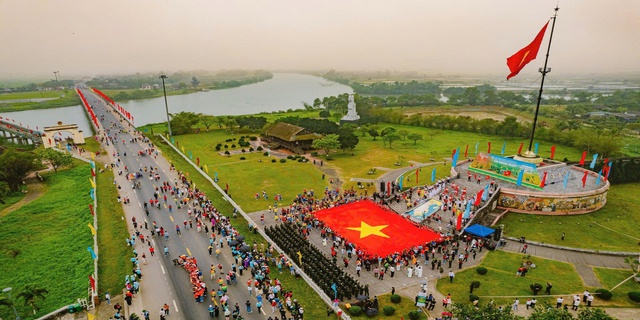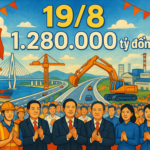
The Spatial Cost of Living Index (SCOLI) is a relative indicator that measures the variation in the prices of consumer goods and services across provinces and directly-governed municipalities, as well as across socio-economic regions, usually over a one-year period.
The SCOLI is utilized for socio-economic development planning, assessing the effectiveness of poverty reduction and hardship allowance policies, and calculating the Human Development Index (HDI) and the Gross Regional Domestic Product (GRDP) based on purchasing power parity.
Businesses can use the SCOLI to evaluate their competitiveness in terms of pricing, market share, and product costs, while individuals can reference it during salary negotiations and when considering inter-provincial migration.
According to the 2024 report on the Spatial Cost of Living Index by the Statistics Bureau, the ranking of socio-economic regions by cost of living remained relatively stable compared to 2023. The Southeast region maintained its position as the most expensive region in the country, with a SCOLI of 100.37%. This was followed by the Red River Delta at 100%, the Northern Midland and Mountainous region at 99.98%, North Central and Coastal Central region at 99.05%, the Central Highlands at 97.69%, and lastly, the Mekong River Delta at 97.11%.
Prior to the merger, Hanoi retained its position as the most expensive province in 2024. Quang Ninh ranked second with a SCOLI of 99.94% compared to Hanoi. Out of the 11 main consumer goods and service groups, Quang Ninh had higher average prices in three groups: medicine and healthcare services (109.37%), housing, electricity, water, fuel, and building materials (104.38%), and other goods and services (100.37%).
On the other hand, Quang Ninh had lower average prices than Hanoi in some groups: culture, entertainment, and tourism (90.72%); transportation (92.18%); and clothing, hats, and footwear (94.41%).
Quang Ninh’s high ranking in terms of cost of living can be attributed to its dynamic and comprehensive development as a tourism hub, a maritime economic center, and a gateway to the key northern economic region and the country.
In contrast, the former Quang Tri province had the lowest SCOLI in the country in 2024, at 91.46% compared to Hanoi. The average prices of goods groups in Quang Tri ranged from 78.87% to 113.34% of those in Hanoi.
With one of the lowest per capita incomes in the country, Quang Tri’s economy relies mainly on agriculture, forestry, fisheries, trade, and light industry, resulting in relatively low food prices. Additionally, Quang Tri’s historical sites rather than large amusement parks contribute to lower service prices.
Overall, the lower prices in Quang Tri can be attributed to the lower costs of essential goods and services, including food, clothing, housing, utilities, transportation, telecommunications, education, entertainment, and tourism.
The Magic of Real Estate Pricing: A Tailored Approach
“Experts argue that a single, uniform land price list could undermine market principles and exacerbate issues in an already opaque real estate market.”
The Unprecedented Event: 89 Projects Inaugurated, 161 New Ventures Commence in a Single Day, with a Combined Scale of 1.28 Quadrillion Dong
On August 14, in Hanoi, the Government Office collaborated with the Ministry of Construction to hold a press conference. The event aimed to disseminate information regarding the preparations for the inauguration and groundbreaking ceremony of various projects and initiatives commemorating the 80th National Day (September 2, 1945 – September 2, 2025).
“Empowering Ho Chi Minh City: Substantive Support to Foster its Rise as a Global Economic and Financial Hub”
Working alongside Ho Chi Minh City’s leadership, Deputy Prime Minister Ho Duc Phoc acknowledged the city’s vast untapped potential. He emphasized that the Government would provide substantial support to propel Ho Chi Minh City towards becoming a leading international economic and financial hub.




















